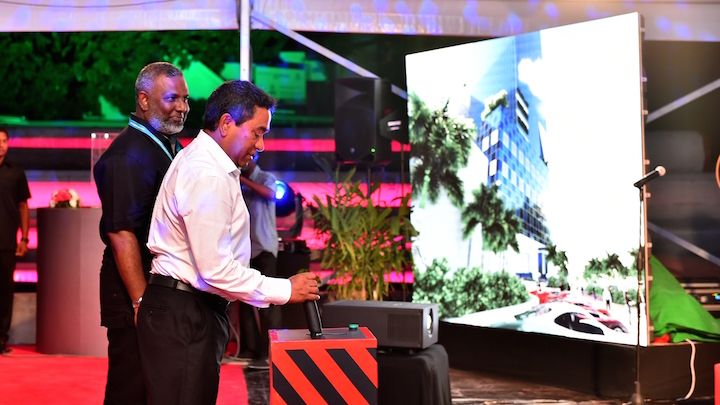Anti-graft watchdog prompts criticism for ruling out corruption in biggest ever property deal
The anti-graft watchdog has come under fire for declaring legal the government’s choice of a contractor to build a new wing for Malé’s public hospital, a project worth MVR2.1billion (US$140million)

13 Dec 2016, 09:00
The anti-graft watchdog has come under fire for declaring legal the government’s choice of a contractor to build a new wing for Malé’s public hospital, a project worth MVR2.1billion (US$140million).
The cabinet’s economic and youth council was accused of graft in March when it chose Singapore’s Chang Hua Construction Pvt Ltd for one of the largest property deals in Maldivian history without a competitive bidding process.
The Anti Corruption Commission on December 5 approved the choice stating that amendments brought to public finance regulations allowed the government to award major projects without an open bid.
The ACC did not comment on how Chang Hua was invited to submit a proposal in the first place.
Become a member
Get full access to our archive and personalise your experience.
Already a member?
Discussion
No comments yet. Be the first to share your thoughts!
No comments yet. Be the first to join the conversation!
Join the Conversation
Sign in to share your thoughts under an alias and take part in the discussion. Independent journalism thrives on open, respectful debate — your voice matters.




